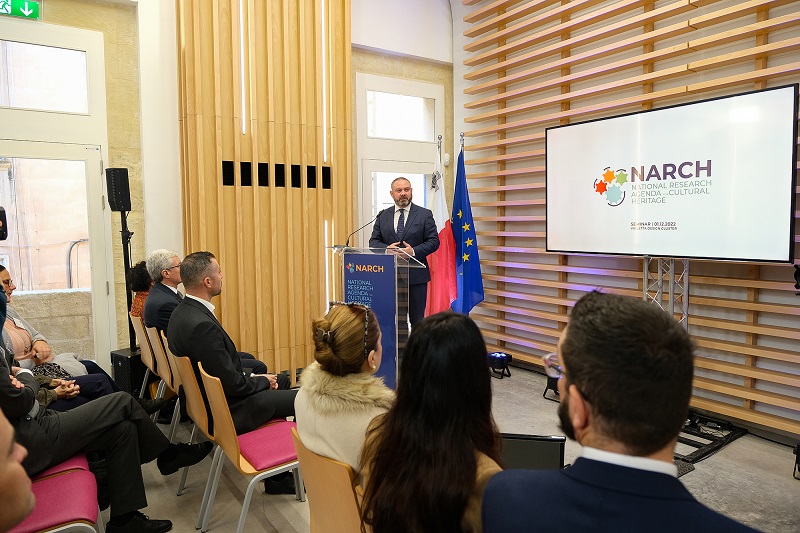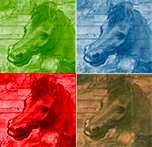
Significant progress in terms of promoting Heritage Science research on a National scale in Malta
December 1st saw the launch of Malta’s National Research Agenda for Cultural Heritage (NARCH) nationwide platform. The Superintendence of Cultural Heritage is leading this initiative, together with the Ministry for the National Heritage, the Arts and Local Government (MHAL), and works in parallel with E-RIHS, which is being spearheaded by the same Ministry and the University of Malta; the research goals of both initiatives work in parallel and involve the same stakeholders.
Over the preceding months, a targeted focus centering on networking and establishing national research priorities was created. The exercise started with a survey and a questionnaire sent to 200 academics and professionals within the university and national and other heritage entities, which see research as one of their core functions; the responses received were over 100. The seminar held on the 1st of December saw the participation of more than 80 researchers from all local heritage entities; here, the findings from this comprehensive survey were presented. The Hon addressed the multidisciplinary audience. Minister for National Heritage and the Permanent Secretary of the same Ministry (MHAL), the Superintendent of Cultural Heritage, the E-RIHS National Node coordinator and the NARCH coordinator. A video of the event can be found at The day-long seminar also included two workshop sessions, six of which were specialization focus groups (archaeology, art history, built/urban heritage and restoration, archives/history/ancient languages, anthropology/cultural heritage management, objects restoration/heritage sciences), and another six with interdisciplinary participants. After each workshop session, rapporteurs shared the outcomes from their groups with the broader audience. Attendees also had the opportunity to meet and network during breaks and expressed great satisfaction at having this occasion to do so; more of these events were requested to stimulate the exchange of ideas and to promote the cross-fertilization of research topics. The Superintendence of Cultural Heritage will develop this project further in the coming years and is already planning a follow-up with the stakeholders.
Another national initiative, this time by the Ministry responsible for Research and Innovation, was the launch for public consultation of the National Research and Innovation Strategic Plan 2023-2027. The recently established National Node for E-RIHS.mt substantially contributed by providing consolidated feedback drawing together the principle nine heritage entities involved in research. The joint response emphasized the importance of Heritage and Heritage Science – a reference to the ongoing NARCH and E-RIHS initiatives will now be included in the final R&I strategy document.
The feedback also outlined how the work of E-RIHS promotes and supports the primary focus of the upcoming R&I strategy, that of embedding research and innovation at the heart of the Maltese economy and society, with the aim of improving quality of life, resilience and sustainability. The National Node also proposed that the general thrust for funding in this strategy should include Heritage Science research, highlighting that this can stimulate social well-being, the economy and education and is also a direct contributor to the EU Green Deal and several Sustainable Development Goals (SDGs).
An important concept which was also presented by E-RIHS.mt and which received positive feedback from the originators of the consultation document was to refer in the final document to STEAM rather than STEM, where STEAM puts the ARTS (A) in their well-deserved place together with the Sciences (S), Technology (T), Engineering (E) and Mathematics (M) – highlighting once again the multidisciplinarity which is what Heritage Science is.
Watch the VIDEO
